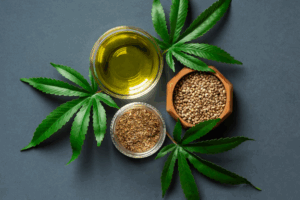Trainwreck Kratom: What It Is & Why People Love It
If you’ve explored the world of kratom, you’ve probably come across Trainwreck Kratom — a name that’s bold, a little mysterious, and often mentioned by

In recent years, the popularity of Kratom has surged, with enthusiasts praising its potential benefits. As the interest in this Kratom plant is increasing, it’s crucial to stay informed about the legal landscape surrounding its use in different states. In this exploration, we delve into the specific regulations governing Kratom in the Land of 10,000 Lakes—Minnesota.
Kratom, derived from the leaves of the Mitragyna speciosa tree, has gained popularity for its potential benefits. However, state laws regarding Kratom can vary, and understanding the legal status is essential to taking Kratom.
Minnesota’s stance on Kratom involves a nuanced evaluation of its properties and potential risks. We will navigate through the legislative framework, recent updates, and any pending changes that might impact Kratom enthusiasts in the state. Whether you are a seasoned Kratom user or just beginning to explore its potential, this guide aims to provide a clear and up-to-date overview of the legal status of Kratom in Minnesota, offering you the knowledge needed to make informed decisions about your well-being.
Join us on this journey to uncover the regulatory landscape surrounding Kratom in Minnesota with accuracy and insight. In this blog post, we’ll explore the question: Is Kratom Legal in Minnesota?
Kratom, derived from the leaves of the Mitragyna speciosa tree, has gained traction for its varied properties to people. The Kratom tree is characterized by its dark green, glossy leaves, and depending on the region and strain, these leaves can vary in size and shape. Kratom enthusiasts often categorize different strains based on the color of the veins on the leaves—red, green, and white. Each strain is believed to offer a unique combination of effects, allowing users to choose the one that best suits their needs. Yet, its legal status varies across different states, prompting many to question whether the North Star State embraces or restricts the use of Kratom.
To unravel the mystery surrounding Kratom’s legality in Minnesota, let’s consult reputable sources. According to the references provided, Kratom is legal in the state. However, it’s crucial to delve deeper into the specifics. Can you grow Kratom in Minnesota? The answer is not straightforward.
While it is legal to take Kratom, the cultivation of Kratom plants may be subject to certain restrictions according to the Kratom Consumer Protection Act. Unfortunately, the references don’t offer explicit details on the cultivation aspect. As with any botanical substance, it’s essential to stay informed about the nuances of the law to ensure compliance.
While Kratom is permissible in Minnesota, it is important to note that combining it with other substances should be taken care of. Additionally, selling Kratom containing any detectable amounts of 7-hydroxy mitragynine (7-OH) or mitragynine to individuals under 18 years old is classified as a gross misdemeanor. Minors found in possession of such Kratom also face misdemeanor charges.
Apart from these specific regulations, there are no further restrictions on Kratom in Minnesota. Whether you are a resident or a visitor to the state, you are free to experience the advantages of this Asian herb within the confines of the established legal boundaries. It is crucial to stay informed about these guidelines to ensure responsible use and compliance with the laws governing Kratom in the state of Minnesota.
To corroborate our findings, let’s consider insights from different Kratom vendors and advocates. Reputable Websites provide valuable information on the legal status of Kratom in Minnesota. These sources collectively reinforce the notion that Kratom is indeed legal for personal use in the state.
Learn more: Is Kratom Legal in New York?
Understanding the Kratom Consumer Protection Act (KCPA) is essential for enthusiasts and consumers alike. Instituted by the American Kratom Association (AKA), the KCPA aims to establish legal regulations governing the distribution, manufacturing, and sale of Kratom in the United States.
State governments enact the KCPA to ensure that Kratom distributors comply with specific guidelines, including clear labeling of their products. This initiative also aims to dispel myths surrounding the herbal plant, ultimately working towards the removal of any bans on Kratom.
In the state of Minnesota, where Kratom is legal, the government has implemented HF 4815, also known as KCPA Minnesota, to safeguard the well-being of Kratom enthusiasts. KCPA Minnesota specifically prohibits the sale of adulterated and contaminated Kratom. It also renders illegal the distribution of products with inadequate labeling, ensuring that Kratom products provide clear and comprehensive information for users’ safety.
Moreover, the KCPA Minnesota addresses the following concerns:
By adhering to these regulations, KCPA Minnesota aims to create a safer and more transparent environment for Kratom enthusiasts, reinforcing responsible use and the integrity of Kratom products in the market.
In conclusion, Kratom appears to be legal in Minnesota for personal intake. However, the legality of growing Kratom plants might have certain stipulations. To ensure you’re on the right side of the law, it’s advisable to stay updated on any regulatory changes and refer to official state resources for the most accurate information.
If you’re considering incorporating Kratom into your wellness routine, always source your Kratom products from reputable vendors and be aware of the legal parameters governing its use in your state. Remember, laws can develop, so staying informed ensures a safe and compliant experience.
If you’ve explored the world of kratom, you’ve probably come across Trainwreck Kratom — a name that’s bold, a little mysterious, and often mentioned by

What Is Kratom Seltzer? Everything You Need to Know Move over, hard seltzers — a new kind of botanical brew is making waves. Kratom seltzer

Top 7 Kratom Capsules That Work (And Where to Get Them) With the growing number of kratom brands entering the market, finding quality capsules you
Why Red Maeng Da Kratom Is the #1 Choice for Daily Buyers In the world of kratom, Red Maeng Da is one of the most

Plants like Kratom and CBD have received significant attention in recent years for their potential to improve overall wellness. As these two substances continue to